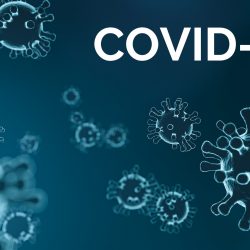The rapid development of artificial intelligence (AI) in healthcare raises questions about the future of human doctors. AI systems are already being used in areas such as medical diagnosis, drug discovery and personalised care. This raises the question of whether AI is set to replace healthcare professionals or whether it will be used to improve their skills. This article explores the advances of AI in medicine and analyses the prospects for doctors in the AI era.
Can AI outperform doctors in medical diagnosis?
Artificial intelligence systems are increasingly being used to improve the accuracy of medical diagnoses. For example, studies show that AI can outperform doctors in certain specific tasks. A study by Esteva et al (2017) found that deep neural networks are able to classify skin cancers with comparable accuracy to experienced dermatologists. In addition, Rajpurkar et al (2018) demonstrated that AI algorithms, such as CheXNeXt, can interpret chest X-rays with a level of accuracy close to that of human radiologists.
These technologies are based on machine learning algorithms, including deep neural networks, which allow AI to continually improve by analysing huge amounts of data. The results obtained in medical diagnostics therefore raise the question of whether AI could eventually replace certain tasks currently performed by doctors.
How is AI speeding up drug discovery?
Artificial intelligence is not limited to medical diagnosis; it is also transforming the drug discovery process. AI technologies can generate promising new molecules for drug development, reducing the time needed for pharmaceutical research. Thanks to AI, researchers can rapidly analyse millions of molecular combinations, identifying those most likely to be effective against certain diseases.
This advance considerably speeds up the research and marketing of new drugs, making the process more efficient and less costly. AI has thus become an indispensable asset in the field of pharmaceutical research.
Does AI enable optimum personalisation of medical care?
One of the most promising applications of AI in medicine is the personalisation of care. By analysing patients’ medical data, such as their medical history, lifestyle and test results, AI is able to design tailor-made treatment plans. This approach improves clinical outcomes by offering treatments that are better adapted to patients’ individual needs.
AI systems, by combining vast and diverse databases, can also predict a patient’s response to a particular treatment, reducing the risk of adverse effects. This contributes to more precise, patient-centred medicine.
Will AI replace doctors?
The rise of AI in medicine raises questions about the future role of doctors. Some experts predict that AI could replace certain medical functions, particularly those based on data analysis. However, despite these technological advances, human interaction and clinical expertise remain essential.
Doctors bring an irreplaceable human dimension to the treatment of patients, which includes listening, empathising and making ethical decisions in complex situations. AI, although powerful, cannot replace these interpersonal skills, which are essential in medical practice.
What are the ethical challenges of AI in healthcare?
The integration of AI in the medical field also raises ethical challenges. One of the main concerns is liability in the event of a diagnostic or treatment error caused by an AI system. Who is responsible if AI fails?
Protecting the confidentiality of patient data is another major issue. AI systems analyse huge quantities of personal data, which raises the question of the security and management of this information.
Furthermore, if patients are to have confidence in these new technologies, it is crucial that doctors play a central role in supervising AI systems. Collaboration between humans and machines seems to be the most promising way of ensuring the ethical and effective use of AI in medicine.
References
- Topol, E. J. (2019). Deep Medicine: How Artificial Intelligence Can Make Healthcare Human Again. Basic Books.
- World Health Organization (2021). Ethics and governance of artificial intelligence for health.
- Esteva, A., et al. (2017). “Dermatologist-level classification of skin cancer with deep neural networks.” Nature, 542(7639), 115-118.
- Rajpurkar, P., et al. (2018). “Deep Learning for Chest Radiograph Diagnosis.” PLoS Medicine, 15(11), e1002686.





